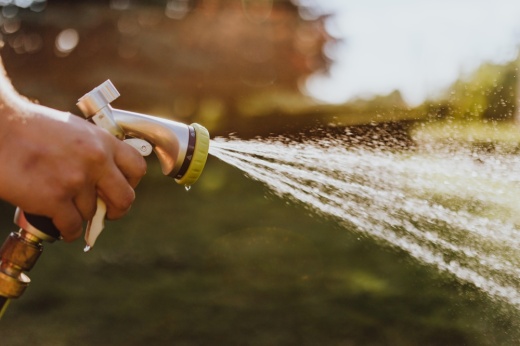The project, which was approved at the Jan. 17 City Council meeting, is intended to reduce cost and increase accuracy through the use of AMI, or advanced metering infrastructure, according to a city news release.
While there are a number of water meter designs, the most traditional utilizes an impeller, or rotor. As fluid pushes through the pipe, it forces the impeller to rotate at speeds proportional to the amount of water moving through the pipe, providing an accurate reading similar to a car’s odometer, according to the website of Water Utility Solutions, a residential water meter installation and reading company.
Due to the mechanical nature of the process, impellers degrade over time, reducing the accuracy of the meter. Other methods for measuring water flow such as electromagnetic impedance and ultrasonic or velocity meters exist, but are less common.
Advanced water metering uses newer technology over the top of old meters to send live-use data through a system of relays and back to the city.
"The ultimate goal of this project is to keep our community safe by maintaining a safe, reliable water supply for future generations and do so in a way that invests in our city infrastructure to save money for our citizens," Director of Public Works Brian Butscher said in the news release. "Advanced metering infrastructure will help us make data-driven decisions that will improve efficiency and ultimately save taxpayer dollars. This same data will be available to water customers."
A similar project was rolled out in Friendswood in January 2022, which saw the installation of 14,000 smart meters, and in The Woodlands in 2020. The city is Pearland is also updating its system, which should wrap up in the first quarter of 2023.
By retrofitting most meters and replacing a select few that are incompatible with the technology, Sugar Land intends to use smart monitoring technology to enable live tracking of water usage to pinpoint leaks and provide residents with more information.
Sugar Land Communications Director Doug Adolph said “a small percentage” of residents may have their meters fully replaced.
“Every meter will be touched, but most customers won’t notice since it will involve adding technology inside boxes and existing meters will remain in place,” he said. “There may be some meters that will need to be replaced, but we expect that to be a very small percentage.”
Additionally, the majority of residents are not expected to experience water interruptions, but some customers may lose water for 15-20 minutes as their meters are replaced, the release said.
Construction is expected to begin this year and should be complete by 2025, according to the release.
More information on the project can be found online at www.sugarlandtx.gov/ami.





